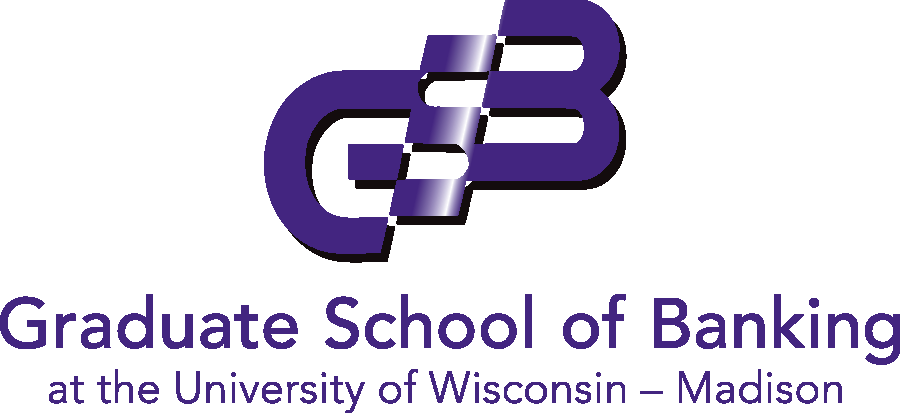Home > Schools & Programs > Bank Cybersecurity School > Curriculum
Section: October 12-16, 2026
Fluno Center at the University of Wisconsin-Madison
Madison, Wisconsin
Enrollment deadline: September 11, 2026
The school’s comprehensive curriculum features two core areas of study – the business of banking and offensive and defensive IT security measures.
This section is an introduction to banking for technology and cybersecurity professionals who want to understand the business they serve, how it works, and a bank’s critical role in our local communities.
This section provides a comprehensive overview of the evolving threat landscape facing financial institutions.
Key Topics:
Master the strategic and operational aspects of managing an information security program within a bank. This material emphasizes the crucial role of management in developing written policies, meeting regulatory requirements, and integrating administrative, technical, and physical safeguards.
Key Topics:
This section provides a clear and practical guide for conducting risk assessments in financial institutions, focusing on regulatory requirements. It emphasizes the significance of risk assessments for ensuring compliance, facilitating informed decision-making, and developing robust information security programs.
Key Topics:
Participants will learn how to prioritize assets, document controls, demonstrate compliance, and use risk assessments to inform security strategies and promote continuous improvement.
IT Security Auditing and Testing provides a comprehensive overview of the procedures essential for maintaining strong cybersecurity in financial institutions. It covers various types and scopes of audits, relevant regulatory frameworks such as FFIEC and FDIC InTREx, and emphasizes the importance of risk-based, independent, and ongoing audit programs.
Key Topics:
Participants will gain practical insights into designing audit programs, applying industry standards, and integrating audit findings into continuous risk management and security improvement efforts.
System vulnerabilities continue to plague the software we rely on, and cybercriminals are evolving in their ability to quickly identify and exploit vulnerabilities.
Key Topics:
Participants will learn to identify, analyze, and prioritize vulnerabilities in banking systems and develop remediation strategies to protect critical assets.
Learn and understand advanced penetration testing methods to evaluate the security of bank networks. This session includes reconnaissance, exploitation, post-exploitation, and reporting, with a focus on real-world scenarios and compliance requirements.
Explore the intricate technical foundations and the latest trends in cybersecurity as they specifically pertain to the banking sector. This session delves into the crucial elements of threat intelligence and examines the sophisticated attack vectors that cybercriminals employ.
Participants will gain insights into effective defense strategies designed to safeguard financial institutions, as well as an understanding of the evolving tactics of cybercriminals who relentlessly target the banking industry. Join us to participate in engaging discussion that highlights the pressing challenges and innovative solutions within this critical field.
Study how AI and machine learning are revolutionizing cybersecurity in the banking sector. We’ll examine AI’s role in threat detection, automated response, and decision support, while addressing the ethical and regulatory considerations unique to banking. You’ll gain insight into how AI can create a competitive advantage, while also understanding the new risks and operational challenges it introduces.
Investigate how to utilize Open Source Intelligence (OSINT) for threat hunting, fraud detection, and investigations in the banking sector. Learn how to gather, analyze, and apply publicly available data to strengthen your institution’s security measures. This approach can be an effective resource for addressing both cybercrimes and physical threats to our institutions.
Explore the risks that the dark web poses to banks and their customers. This session will focus on understanding underground forums, identifying potential threats, and responding to data breaches and fraud that may arise from dark web activities. You’ll learn how to utilize insights from the dark web to enhance your institution’s awareness of cybercrimes and mitigate risks to our banks.
As web applications increasingly become the foundation for innovation in the banking industry, critical vulnerabilities and attacks on these digital platforms continue to rise. It is essential that we understand how to assess and mitigate risk to protect data and maintain trust. In this hands-on technical session, participants will learn to ethically test and secure web applications, exploring common vulnerabilities—including those in the OWASP Top 10—along with exploitation techniques and secure coding practices to strengthen security posture.
Get ready to handle cyber-attacks by using established incident handling methodologies. This session will cover the key steps: detection, containment, eradication, recovery, and post-incident analysis, with a special emphasis on threats specific to the banking sector and regulatory requirements. Learn from the mistakes and oversights of other organizations to enhance your preparedness and resilience.
Gain practical skills in digital forensics specifically for banking environments. Learn techniques for evidence collection, analysis, and reporting to support incident investigations, regulatory inquiries, and legal proceedings. While it’s our hope that cybersecurity incidents never happen, the likelihood of them occurring is too significant to ignore. Basic preparation can turn digital forensics into a powerful tool for responding to incidents.
NOTE: The Cybersecurity School provides up to 4 hours of advanced placement credit toward several professional certifications available through the SBS Institute. For specifics, please contact SBS as they approve the credits toward these certifications.
We use cookies to enhance your experience on our website. By clicking "Accept," you agree to the storing of cookies on your device to analyze site usage, enhance site navigation, and assist in our marketing efforts. If you do not wish to accept all cookies, you can manage your preferences by clicking "Deny." For more detailed information about the cookies we use, see our Cookies Policy.

| Thank you for Signing Up |
